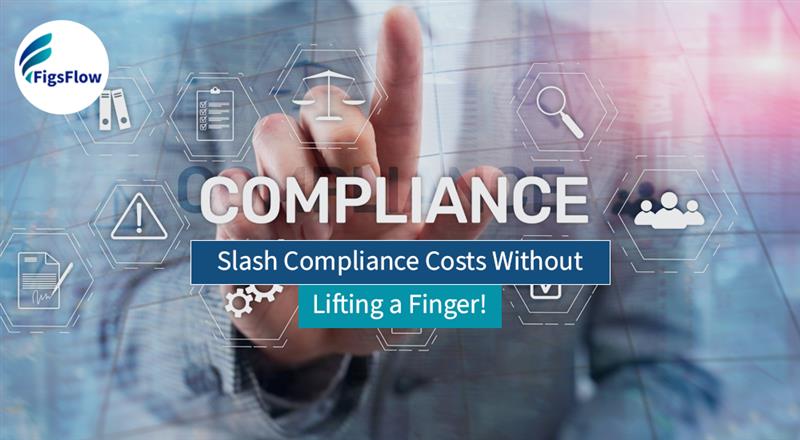Did you know that UK accountants face AML fines that have surged by 177% in just four years? The pressure on firms to stay compliant has never been higher.
Yet, many practices still rely on manual AML and KYC process spending hours chasing client documents, checking IDs, and logging compliance records. These tasks drain resources, slow down onboarding, and expose firms to costly mistakes.
So, what’s the way around?
Read on to uncover the true cost of manual AML & KYC and see cost savings of doing it the smart way with automation.
The True Cost of Manual AML Processes
Manual AML checks take way more time (and money) than most firms realise.
On average, firms spend 3-4 hours per client and that jumps to 6-8 hours for enhanced due diligence. Those alone costs around £120-220 per client, rising to £300-450 for higher risk cases.
But that’s just the start. Hidden costs stack up fast, including:
- Rework – 15-20% of files need corrections, adding £25-45 per client
- Regulatory Enquiries – 4-8 hours of senior staff time per inquiry (£200-480)
- Client Delays – Longer onboarding means slower fee recognition and strained relationships
- Storage – Paper files add $5-12 per client annually
- Ongoing Monitoring – Medium/high risk clients require monthly checks. That requires 17-38 staff hours every month.
For a 200-client practice, this translates to £24,000-49,000 a year in admin expenses. That’s money buried on manual compliance instead of growth.
How Automation Can Help
Anti Money Laundering (AML) automation turns hours of manual checks into minutes or even seconds. Modern platforms plug directly with official databases and regulatory lists, verify documents in real time, and keep everything up to date automatically.
Here’s where the biggest savings happen:
- ID Verification – Automated systems can verify identity documents against official databases within 30-60 seconds, compared to 90-120 minutes for manual verification. This represents a 95% reduction in identity verification.
- Sanctions & PEP Screening – API connections to official watchlists complete checks in under 10 seconds. The system maintains current data automatically and eliminates the risk of outdated list versions.
- Risk Assessment – Predefined algorithms apply criteria consistently across clients. It reduces the review time by 60-70%, reduces subjectivity and strengthens regulatory compliance.
- Data Integration – Integration capabilities eliminate duplicate data entry across systems and ensures the seamless flow of information into practice management platform.
- Audit Trail Creation – Audit trail is created automatically with every check, decision, and document timestamped and stored. Manual file assembly typically requires 20-30 minutes per client; automation reduces this to zero while creating more comprehensive records.
ROI of AML & KYC Automation
Investing in AML and KYC automation comes with some upfront costs, but the returns can be significant. Typical software costs include:
- Subscription – £50–150 per user per month
- Implementation – 5–15 hours per user
- Training – 2–4 hours per team member
For a 5-user practice, this totals a first-year investment of around £3,700–11,300. This might seem like a lot initially, but it comes with substantial cost savings.
Savings come from multiple areas. Faster client onboarding can reduce processing time from 4 hours to just 30 minutes per client. For a 200-client practice, that translates to £24,500 annually. Ongoing monitoring also becomes more efficient: reducing monthly review time from 30 to 5 minutes per medium/high-risk client saves £10,500 per year.
Not only does automation cut costs, but there are also additional benefits as well.
- Automation reduces lead response time, helping increase conversion rates.
- Clients can be onboarded in 24–48 hours instead of 2–3 weeks, improving satisfaction and accelerating fee recognition.
- Teams spend less time on administrative compliance and more on advisory services, business development and client relationship management.
- Consistent, documented processes reduce regulatory risk and ensure ongoing compliance with evolving requirements.
In short, AML and KYC automation delivers both financial and operational value, paying back the initial investment quickly while letting teams focus on higher-value work.
Make Compliance Easier This October with FigsFlow
FigsFlow has fully integrated KYC and AML module, designed to make compliance effortless for accounting practices.
Here’s what you get with FigsFlow:
- Client Document Portal – A secure, centralized place for all client documents.
- AML Verification – Automated checks to ensure compliance without manual effort.
- KYC Verification – Fast and accurate client verification.
- Client Risk Assessment Templates – Pre-built templates for free that guide risk classification with automatic scoring.
- Sanctions List Screening – Comprehensive screening against major national and international sanctions databases.
- Schedule Custom AML Screening – Set periodic review intervals based on client risk levels with automatic alerts.
- Automated Audit Trail Creation – Every action logged and timestamped automatically.
FigsFlow users can experience end-to-end compliance, from proposals and engagement letters to AML/KYC checks and ongoing monitoring, all in a single platform.
All of this comes at a price you’d never expect, making FigsFlow the most reliable yet most affordable AML software for UK accountants.
Update: FigsFlow's AML module is now live.
Electronic identity verification, automated sanctions screening, risk assessments, Enhanced Due Diligence, and complete audit trails are all available now within your client workflow. Everything happens in one accountant-centric platform at the most affordable price in the market. Try FigsFlow free for 30 days and experience effortless compliance today.
Conclusion
Manual AML and KYC processes cost accounting firms thousands of pounds every year in staff time, rework, and ongoing monitoring. But it doesn’t have to be this way.
By automating compliance with FigsFlow, you can streamline onboarding, verification, and audit trails, thereby cutting hours of manual work and reducing errors. The savings aren’t just financial: your team can focus on higher-value tasks, clients get onboarded faster, and compliance becomes effortless.


